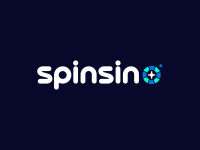The Rise and Effects of Live Gambling Streams

The past decade has witnessed the emergence of a new breed of gambling evangelists: streamers and social‑media influencers who broadcast live gambling streams to global audiences.
A landmark study by Dr. Mark R. Johnson and Nicole J. Jackson at the University of Sydney — “Live Streaming Gambling: Who watches, why, and what effects is it having?” — offers one of the first comprehensive looks at this phenomenon.
It is combining textual analysis of media coverage, an online survey of over 300 viewers, and direct observation of some 25 live‑stream channels on platforms such as Twitch and Kick.
Play in the best Online Casinos
Just click on the images to register. You can find a full casino list here.
Who is tuning in to Live Gambling Streams, and why?
- A sizable minority of gamblers. Among a broader cohort of 965 regular gamblers in related research, 23 percent reported watching gambling live streams in the past year.
- Motivations beyond profit. Viewers frequently cite the thrill of vicarious play. The opportunity to learn strategies from perceived “experts,” and the simple appeal of shared experience within a like‑minded community .
- Accessibility and age‑gaps. Live streams often feature direct links to wagering sites, lowering barriers to real‑money play — and, critically, exposing underage viewers to unregulated gambling content.
The upside: Community, entertainment and learning
- Shared social space. Stream chats and “subscriber” groups foster a sense of belonging often missing from solitary online betting. Many participants describe streams as friendly hangouts rather than pure marketing channels .
- Low‑stakes excitement. For some, watching large bets play out can deliver the rush of gambling without risking one’s own funds.
- Informal education. Observing seasoned players discuss tactics can demystify games like poker or roulette and potentially improve decision‑making for casual bettors.
- Combating boredom. Particularly during lockdowns or in isolated communities, streams provide a form of live entertainment that blends gaming culture with real‑world stakes.
The downside: Normalization, misinformation and addiction
- Reinforced cognitive distortions. Streamers and viewers collectively perpetuate myths. These include “hot” machines, “rigged” tables, or “sure‑win” tactics — that can deepen irrational beliefs about chance and control.
- Heightened cravings. A majority of surveyed viewers reported that watching live streams made them more likely to gamble with real money, rather than serving as a harmless diversion.
- Unregulated promotion. Unlike traditional advertising, these broadcasts operate outside most licensing regimes: there are often no age checks, no mandatory harm‑warnings, and no limits on sponsorship disclosure.
- Financial harm. Some viewers “tip” streamers to increase bet sizes, thus effectively monetizing their own impulse for someone else’s entertainment—and potentially accelerating debt accumulation.
- Mental‑health risks. Early data suggest that stream viewers report higher average scores on the Problem Gambling Severity Index (PGSI)—4.45 for viewers versus 1.64 for non‑viewers—indicating moderate risk levels and a greater prevalence of disordered gambling behavior.
How prevalent is problem gambling among this community?
While exact figures vary by platform and region, research highlights that around one in four regular gamblers tune into live streams. And within that subgroup, average PGSI scores cluster firmly in the moderate‑risk range (mean ≈ 4.5, where a score of 8+ denotes problem gambling).
Such data suggest a problem. The very individuals most vulnerable to harm may be disproportionately drawn to — and amplified by — gambling influencers.
Benefits against Risks of Live Gambling Streams
The social cohesion and entertainment value of live‑streamed gambling cannot be dismissed. For some viewers, it offers harmless escapism and a chance to learn.
Yet the unregulated melding of influencer culture with real‑money wagering raises profound concerns. From normalizing problematic beliefs about luck and skill to lowering thresholds for impulsive bets and exposing minors to gambling content.
At present, the scale and potency of potential harms argue for a cautious approach. Especially given the demonstrated link between viewership and elevated PGSI scores.
Regulators and platforms may need to consider age‑verification systems, mandatory disclaimers, and clearer separation between “entertainment” and “promotion.” Only with such safeguards can the positive aspects of community and fun be allowed to flourish without inadvertently fueling the very addiction it purports to innocuously showcase.
More Selected News for You
You must be logged in to post a comment.



